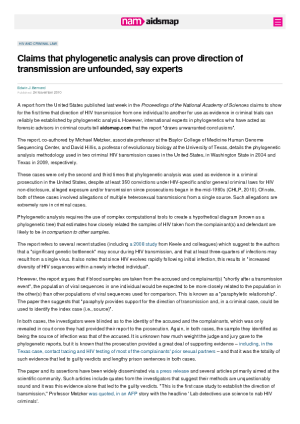Claims that phylogenetic analysis can prove direction of transmission are unfounded, say experts
Questions the merits of a phylogentics article published in Proceedings of the National Academy of Sciences, and warns against relying on its conclusions.
